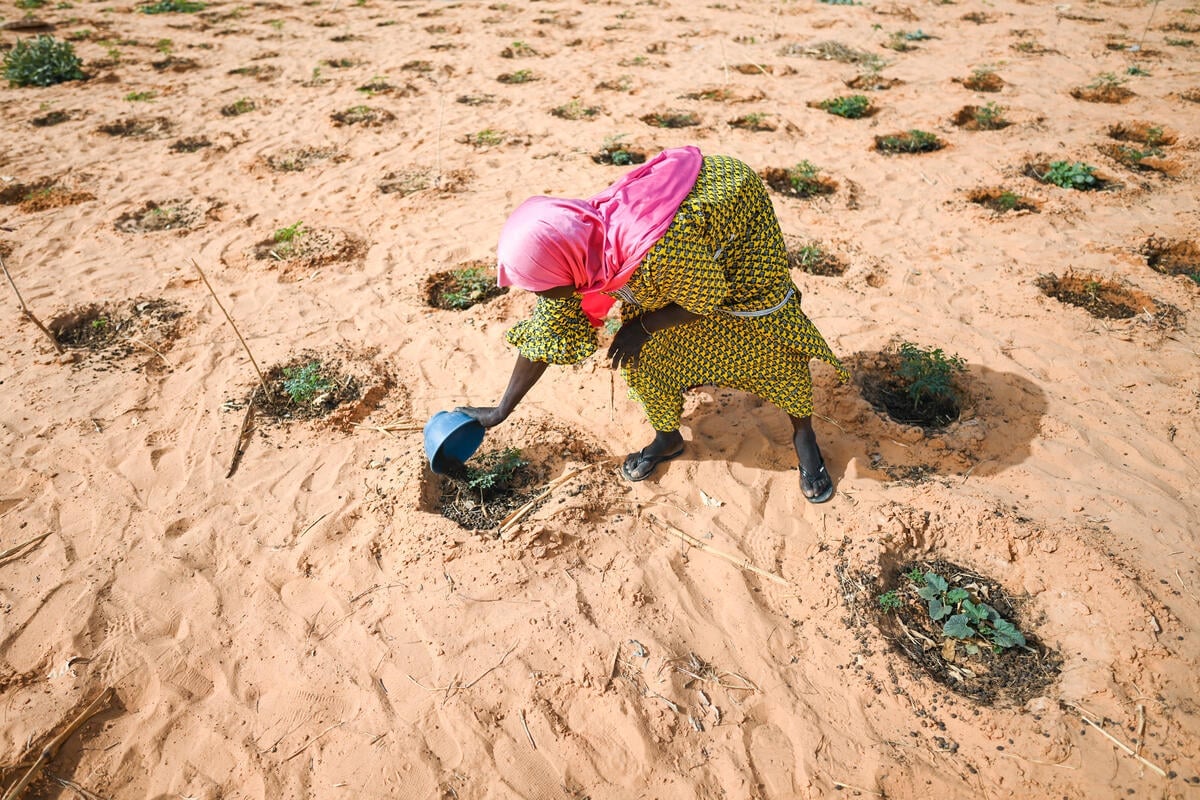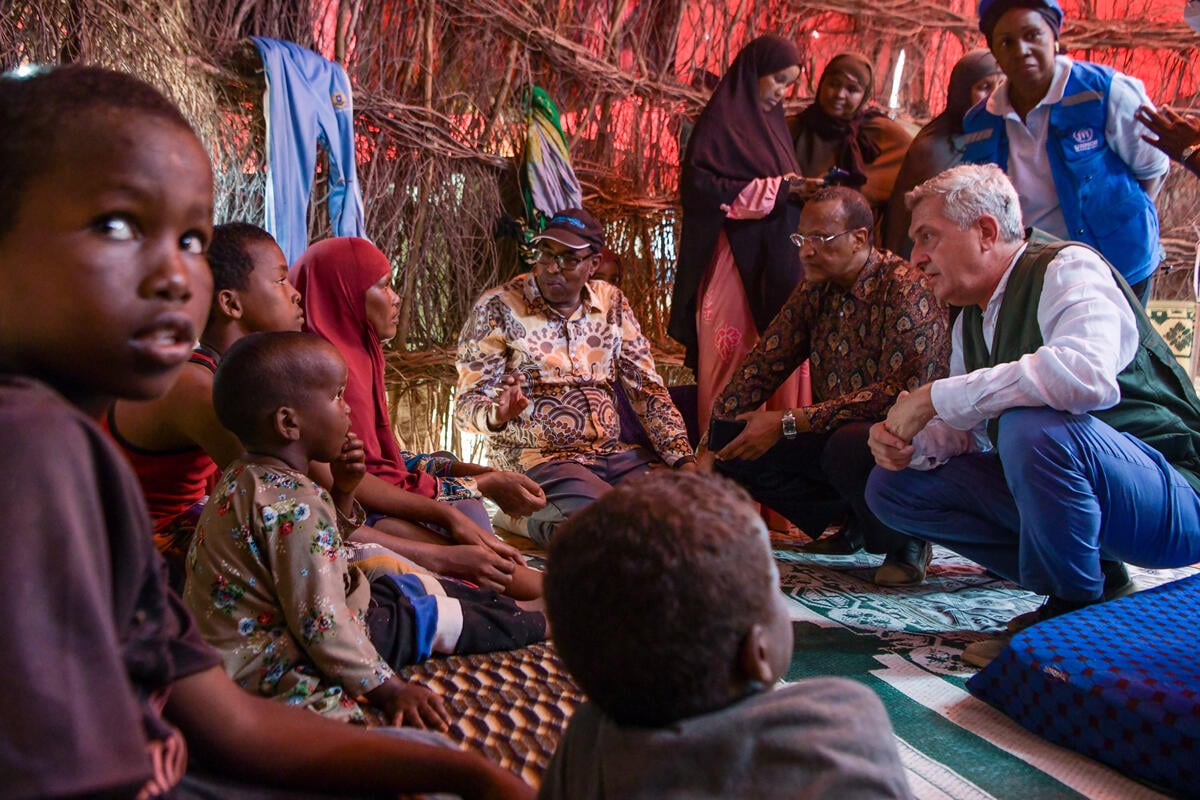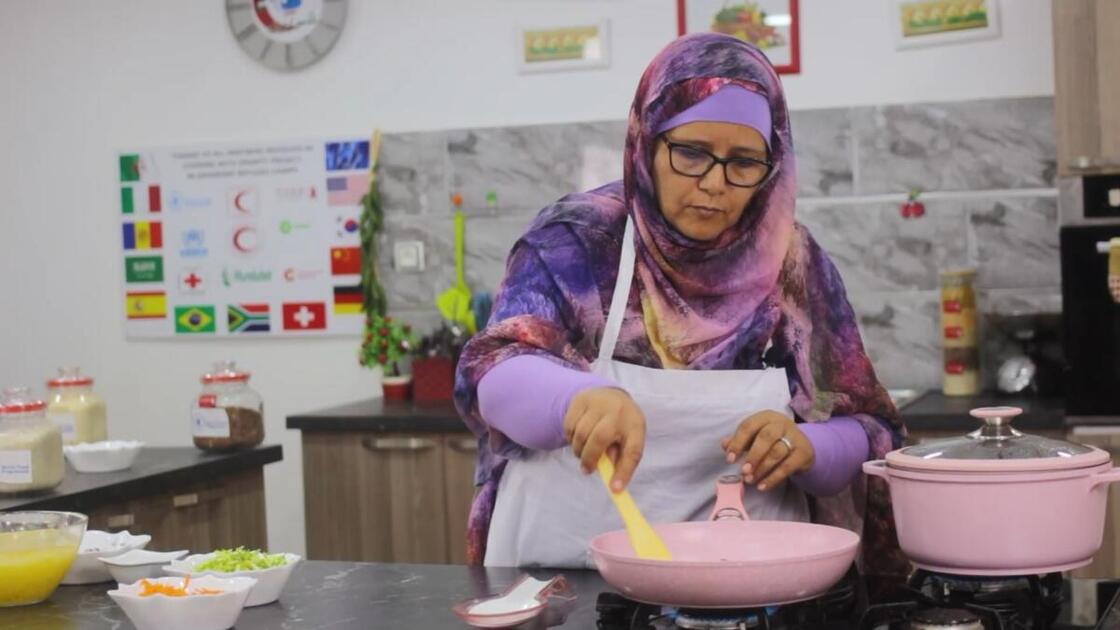UNHCR delivers aid to thousands in southern Libya as conflict rages
UNHCR delivers aid to thousands in southern Libya as conflict rages

GENEVA, Aug 25 (UNHCR) - Amid heaving fighting in Libya, the UN refugee agency said on Tuesday it had managed to distribute aid to tens of thousands of displaced people in and around Tripoli and in the south-west of the conflict-ridden country over the past month, but still needed to reach thousands more.
"We have been unable to reach thousands more in need and call on all parties to allow access to humanitarian organizations," UNHCR spokesperson Melissa Fleming told a press briefing in Geneva.
The distributions took place against the background of some of the worst fighting in the south of the country since Libya's civil war resumed in May 2014.
Escalated conflicts in Sabha and Awbari in the south-west and in the Kufra area - a major transit point for goods and people being smuggled from sub-Saharan Africa - have since late July displaced thousands of people.
"Many of these people are living in desperate conditions and are in urgent need both of food and non-food aid," added Fleming.
The fighting in Kufra, which intensified earlier this month, involves the rival Tebu and Tuareg tribes. The Sabha area, in Libya's southwest, is also plagued by tribal violence, but fighting has moved into the town and on August 8 the situation worsened when clashes erupted between the Libya Dawn militia and supporters of the late ruler Muammar Gaddafi.
The fighting in Sabha has killed an unknown number of civilians and displaced more than 7,500 people. Many were ordered by Libya Dawn to move from a district in the north, while about 5,000 people fled the Tayoree area in the south of Sabha, moving to safer areas of the city or to other towns including Wadi Shati, Jufra, Awabari and Tripoli.
The internally displaced have limited access to benefits and services because movement is extremely restricted.
"We had hoped to reach more than 15,000 people, but this was impossible due to the insecurity," Fleming said.
She detailed that UNHCR had delivered assistance to almost 25,000 people in Tripoli and other coastal areas in the west as well as the inland towns of Wadi Shata and Jufra.
The fighting in the Kufra area has also displaced people and the needs there are great in a region with limited basic services and battered infrastructure. UNHCR has been unable to reach Kufra due to security concerns.
More than 700 families are believed to have fled their homes since July 25 to escape renewed clashes in Kufra that have reportedly killed more than 50 people and injured scores of others.
About half of these people, who sought refuge in neighbouring areas, are living in makeshift accommodation and the rest in an abandoned housing project. There is an urgent need for food and non-food items while water supplies are inadequate.
"In total this year, we have delivered aid to about 60,000 displaced people. Across Libya there are more than 400,000 internally displaced people. We are currently looking at ways to help hundreds displaced by fighting in the coastal town of Sirte, the home town of the late Muammar Gaddafi," Fleming concluded.









